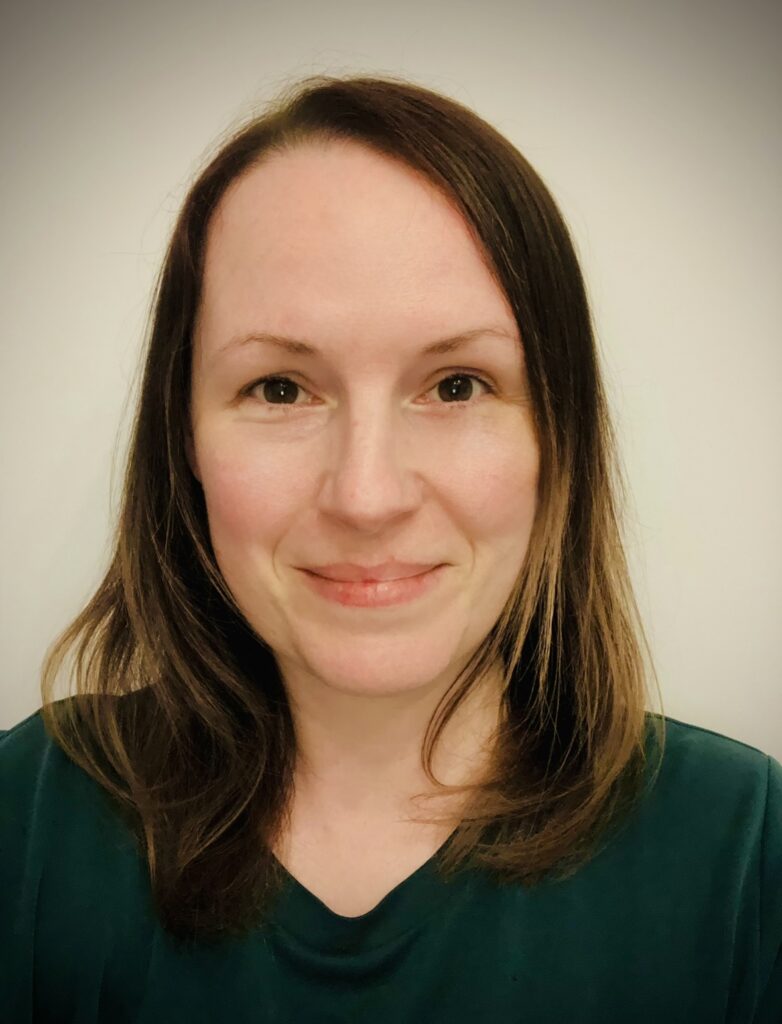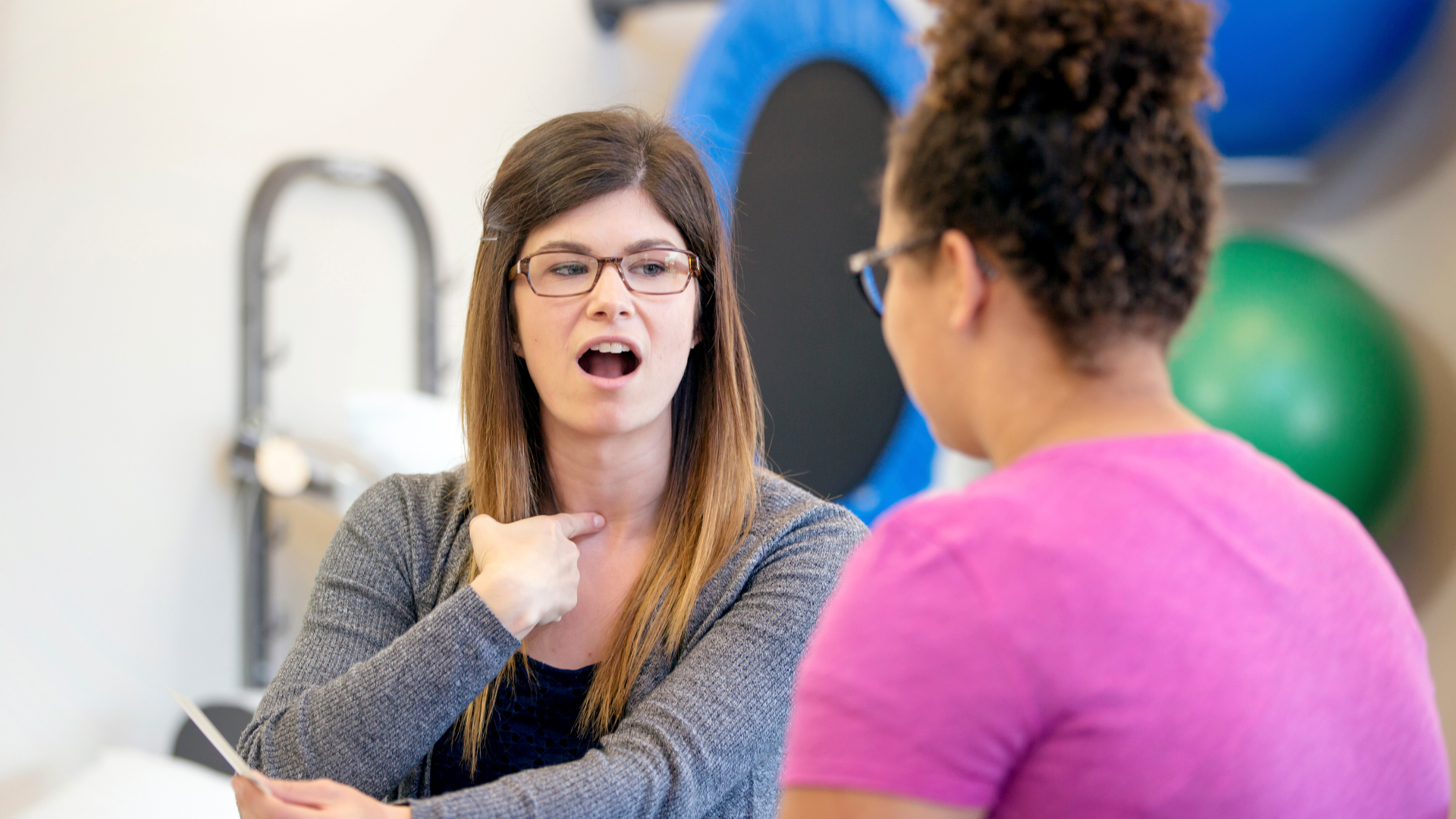Freya is a Speech and Language Therapist who specialises in head and neck cancers as well as ear, nose and throat conditions. Freya works with patients who have had their voicebox removed as part of their cancer treatment and have been fitted with a prosthetic device to regain the use of their voice.
After noticing a lack of guidance on supporting patients through their rehabilitation, Freya decided to apply for a Barts Charity Clinical Research Training Fellowship to create a new therapeutic approach. She completed her Fellowship in 2024.
Read our interview with Freya below…
What inspired you to apply for a Barts Charity Fellowship?
I work with a lot of cancer patients who have been fitted with a prosthetic device following the removal of their voicebox. The prosthetic allows them to make sounds and produce a voice again.
The issue with that is that the voice they produce can be really variable. Some people can’t actually get it to work, or their voice sounds really different to their original voice. It might not have much pitch variation, or the volume control is not there, so it can be really difficult for people to actually understand them.
"Previously, there was no guidance on how to help someone adjust to their new voice; how to make it sound better or more functional for that person. That’s what inspired me to help create a better support for my patients."Freya Sparks
What difficulties do your patients face?
Lack of volume is a huge problem for people. If you’re in a noisy bar or restaurant it can be difficult to be heard or to join in on conversations. It also takes just that little bit longer to initiate the voice. Increasingly people tell us they start to disappear during a conversation.
And also because of the difficulties in modifying pitch and volume, people often reported that they are misunderstood in terms of their mood or their intention. If you can only speak quite monotone and you have to push quite hard to get your voice out, people think they are being angry or aggressive.
We had a parent saying that they really struggled to play outside with their children because they were scared. They can’t shout stop if they need to stop them from running off. Lots of these stories were really heartbreaking.

Freya's research will support patients to adapt to their new voicebox and get back to normal daily activities.
How has your research supported patients in East London?
Head and neck cancer is a big issue in East London as it is a disease strongly associated with socioeconomic deprivation. Whilst head and neck cancer patients are often thought of as predominantly white males, there is also a significant issue of head and neck cancer in the Bangladeshi community.
There was a feeling that the resources for patients aren’t very representative, so we do have several patient experts from that community, who can inform us on those cultural differences on the type of support patients want to receive. Part of my research included a co-production group with the Bangladeshi community which was incredibly helpful.
What impact has your research started to have?
I did a large survey of speech therapists in the UK and Ireland to find out, in the absence of evidence and guidelines, what they feel are barriers to voice rehabilitation.
We then did a focus group with patients to find out what their experiences of communication are, and what they would like to see from a therapy approach. Then we did some pilot studies and co-production with patients to pull together the outline of a new therapy approach.
These outputs have informed the Royal College of Speech and Language Therapists’ professional guidance on laryngectomy rehabilitation.
I’ve had a lot of outputs in terms of presentations at European and UK conferences and disseminating this information to healthcare professional networks.
I feel that this work has really shifted the conversation. It is often very much a sort of light bulb moment for people.
"I feel that this work has really shifted the conversation. It is often very much a sort of light bulb moment for people."Freya Sparks
How did the Barts Charity Fellowship support you?
Without your funding, this research just wouldn’t have been possible. Research funding isn’t easy to acquire, so to actually have an opportunity to do something that completely allows you to step out of your role is incredible. I want to say huge thank you to Barts Charity.
Interested in applying for a Fellowship?
Are you a healthcare professional with a passion for improving healthcare in East London? Our Clinical Research Training Fellowships offers up to three years of funding in PhD training with full-time salary support.


